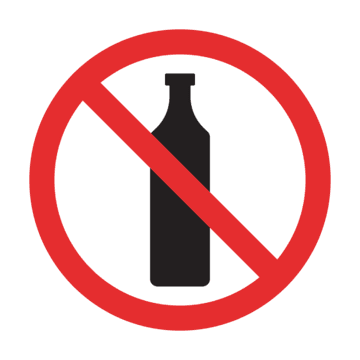5 Natural Alternatives to Alcohol for Anxiety Relief
If you're looking to manage anxiety without relying on alcohol, you're in luck. Mother Nature has provided us with a bounty of herbs, roots, and leaves that can help soothe our frayed nerves. As someone who's battled anxiety myself, I've tried many of these natural remedies like ayahuasca retreats in Canada and found great relief. So sit back, relax, and let's explore some of the best alternatives to the bottle.
Kava
-
- What is kava?
- Kava is a root native to the South Pacific islands that has been used for centuries in traditional ceremonies and as a social drink.
- It contains compounds called kavalactones that promote relaxation without affecting mental clarity.
- How does kava help with anxiety?
- Kavalactones interact with brain receptors to reduce anxiety and stress, promoting a sense of calm and well-being.
- Studies have shown kava (U Relax Kava) to be effective in treating generalized anxiety disorder, making it a promising natural alternative to prescription medications.1
- Preparing and consuming kava
- Traditionally, kava root is ground into a powder and mixed with water to create a beverage, but it can also be consumed as a tincture, capsule, or tea.
- Start with a low dose and gradually increase to find your optimal level of relaxation without drowsiness.
- Potential side effects and precautions
- While generally safe, kava can cause drowsiness and may interact with certain medications, so it's important to consult with a healthcare professional before use.
- Long-term or excessive use may lead to skin dryness, liver damage, and other health issues, so it's crucial to choose high-quality, noble kava from reputable sources and use it in moderation.
- What is kava?
Kratom
-
- What is Kratom?
- Kratom is a tropical tree native to Southeast Asia, and its leaves contain compounds with psychoactive effects that have been used traditionally for pain relief, energy, and mood enhancement.
- Kratom's effects on anxiety
- Certain strains of kratom, particularly red vein varieties, can help alleviate anxiety by interacting with opioid receptors in the brain to produce a calming effect.
- Low to moderate doses of kratom can reduce stress and promote relaxation, making it a popular choice for those seeking natural anxiety relief.
- Different strains and their properties
- Red vein kratom strains are the most calming and sedating, while green vein strains offer a balance of relaxation and mild stimulation.
- White vein strains are more energizing and may not be ideal for anxiety relief, so it's essential to choose the right strain for your needs.
- Dosage and consumption methods
- Kratom can be consumed as a powder, capsule, or tea, and it's best to start with a low dose (2-3 grams) and wait 30-45 minutes to assess effects before gradually increasing as needed.
- It's important to avoid exceeding 10 grams per day to minimize the risk of adverse effects and addiction.
- Risks and legal status
- Kratom can be addictive and cause withdrawal symptoms when used regularly, and high doses may cause nausea, dizziness, and other adverse effects.
- While legal in most US states, kratom is banned in some countries and a few states, so it's crucial to check local laws before purchasing or consuming it.
- What is Kratom?
Coca Tea
-
- History and cultural significance of coca tea
- Coca leaves have been used for thousands of years by indigenous South American cultures as a traditional remedy for altitude sickness, fatigue, and other ailments.
- It's important to note that coca leaves are not the same as processed cocaine and have much milder effects.
- How coca tea can alleviate anxiety symptoms
- Coca leaves contain alkaloids that have mild stimulant and mood-enhancing properties, which can promote a sense of well-being and reduce anxiety.
- The ritual of preparing and sipping coca tea can also have a calming effect, providing a moment of mindfulness and relaxation.
- Preparing and drinking coca tea
- To make coca tea, simply steep dried coca leaves in hot water for 3-5 minutes, using about 1 tablespoon of leaves per cup of water.
- Enjoy coca tea plain or with a touch of honey or lemon to enhance the flavor.
- Legal considerations and availability
- While coca leaves and products are legal in some South American countries like Peru and Bolivia, they are illegal or heavily restricted in the US and most other countries.
- Some online vendors sell coca tea, but the legality and quality may be questionable, so it's essential to exercise caution and do thorough research before purchasing.
- History and cultural significance of coca tea
Chamomile Tea
-
- Chamomile's calming properties
- Chamomile contains an antioxidant called apigenin that binds to benzodiazepine receptors in the brain, promoting relaxation and reducing anxiety by enhancing the effect of the neurotransmitter GABA.
- In addition to its anxiolytic effects, chamomile also has anti-inflammatory and sleep-promoting properties that can further help with anxiety management.
- Scientific evidence supporting chamomile for anxiety relief
- A 2016 study found that chamomile significantly reduced moderate to severe symptoms of generalized anxiety disorder, highlighting its potential as a natural alternative to prescription medications.2
- Another study showed that chamomile extract reduced anxiety and improved sleep quality in elderly people, suggesting its benefits for a wide range of age groups.3
- While more research is needed to fully understand chamomile's mechanisms of action, existing evidence suggests it can be an effective natural anxiety remedy.
- Brewing the perfect cup of chamomile tea
- To maximize the calming effects of chamomile tea, use high-quality, organic chamomile flowers and steep 1 tablespoon of flowers in 8 ounces of hot water for 5-10 minutes.
- For a stronger effect, use more flowers or steep for longer, and feel free to add honey or lemon to taste.
- Incorporating chamomile into your daily routine
- Drinking a cup of chamomile tea in the evening can promote relaxation and improve sleep, while sipping it throughout the day can help manage stress and anxiety symptoms.
- For enhanced effects, try combining chamomile with other calming herbs like lavender or valerian, or explore chamomile supplements and essential oils for convenient anxiety relief on the go.
- Chamomile's calming properties
Valerian Root
-
- What is valerian root?
- Valerian is a perennial flowering plant native to Europe and Asia, and its root has been used for centuries as a natural sedative and sleep aid due to compounds called valerenic acids that have calming effects on the brain and nervous system.
- How valerian root helps reduce anxiety
- Valerian root increases the levels of GABA, a neurotransmitter that promotes relaxation and reduces anxiety, and also contains hesperidin and linarin, antioxidants with sedative and anti-anxiety properties.
- Studies have shown valerian to be effective in reducing anxiety symptoms and improving sleep quality, making it a popular choice for those seeking natural anxiety relief.4
- Different forms of valerian root supplements
- Valerian root can be taken as a capsule, tablet, tincture, or tea, and standardized extracts are available that provide a consistent dose of active compounds.
- It is often combined with other calming herbs like lemon balm or hops for synergistic effects, providing a range of options for different preferences and needs.
- Recommended dosage and timing
- The typical dose of valerian root for anxiety is 120-200 mg, taken 3 times per day, while for sleep, 300-600 mg can be taken 30 minutes to 2 hours before bedtime.
- It's best to start with the lowest effective dose and increase gradually as needed, and it may take a few weeks of regular use to notice the full anxiety-reducing effects of valerian.
- Potential side effects and interactions
- While generally safe and well-tolerated, valerian root may cause mild side effects such as dizziness, headache, or stomach upset in some people.
- It's important to talk to your doctor before taking valerian if you have any medical conditions or are taking medications, as it can interact with certain drugs, including sedatives, antidepressants, and anticonvulsants.
- What is valerian root?
As someone who has personally struggled with anxiety, I know how challenging it can be to find safe and effective ways to manage symptoms. These natural alternatives to alcohol have been a game-changer for me, providing much-needed relief without the risks and side effects of prescription drugs.
Of course, everyone's experience with anxiety is unique, and what works for one person may not work for another. It's important to approach these remedies with an open mind and a willingness to experiment until you find the right fit.
It's also crucial to remember that natural remedies are not a substitute for professional help. If your anxiety is severe or interfering with your daily life, please don't hesitate to reach out to a qualified mental health provider. There is no shame in seeking support, and you don't have to face this struggle alone.
I hope this list of natural alternatives to alcohol for anxiety relief has given you some new options to explore. Remember, taking care of your mental health is a journey, and every small step counts. Be patient with yourself, celebrate your progress, and never give up hope. Brighter days are ahead.
References:
- Sarris, J., Stough, C., Bousman, C. A., Wahid, Z. T., Murray, G., Teschke, R., ... & Schweitzer, I. (2013). Kava in the treatment of generalized anxiety disorder: a double-blind, randomized, placebo-controlled study. Journal of clinical psychopharmacology, 33(5), 643-648.
- Mao, J. J., Xie, S. X., Keefe, J. R., Soeller, I., Li, Q. S., & Amsterdam, J. D. (2016). Long-term chamomile (Matricaria chamomilla L.) treatment for generalized anxiety disorder: A randomized clinical trial. Phytomedicine, 23(14), 1735-1742.
- Chang, S. M., & Chen, C. H. (2016). Effects of an intervention with drinking chamomile tea on sleep quality and depression in sleep disturbed postnatal women: a randomized controlled trial. Journal of advanced nursing, 72(2), 306-315.
- Bent, S., Padula, A., Moore, D., Patterson, M., & Mehling, W. (2006). Valerian for sleep: a systematic review and meta-analysis. The American journal of medicine, 119(12), 1005-1012.


